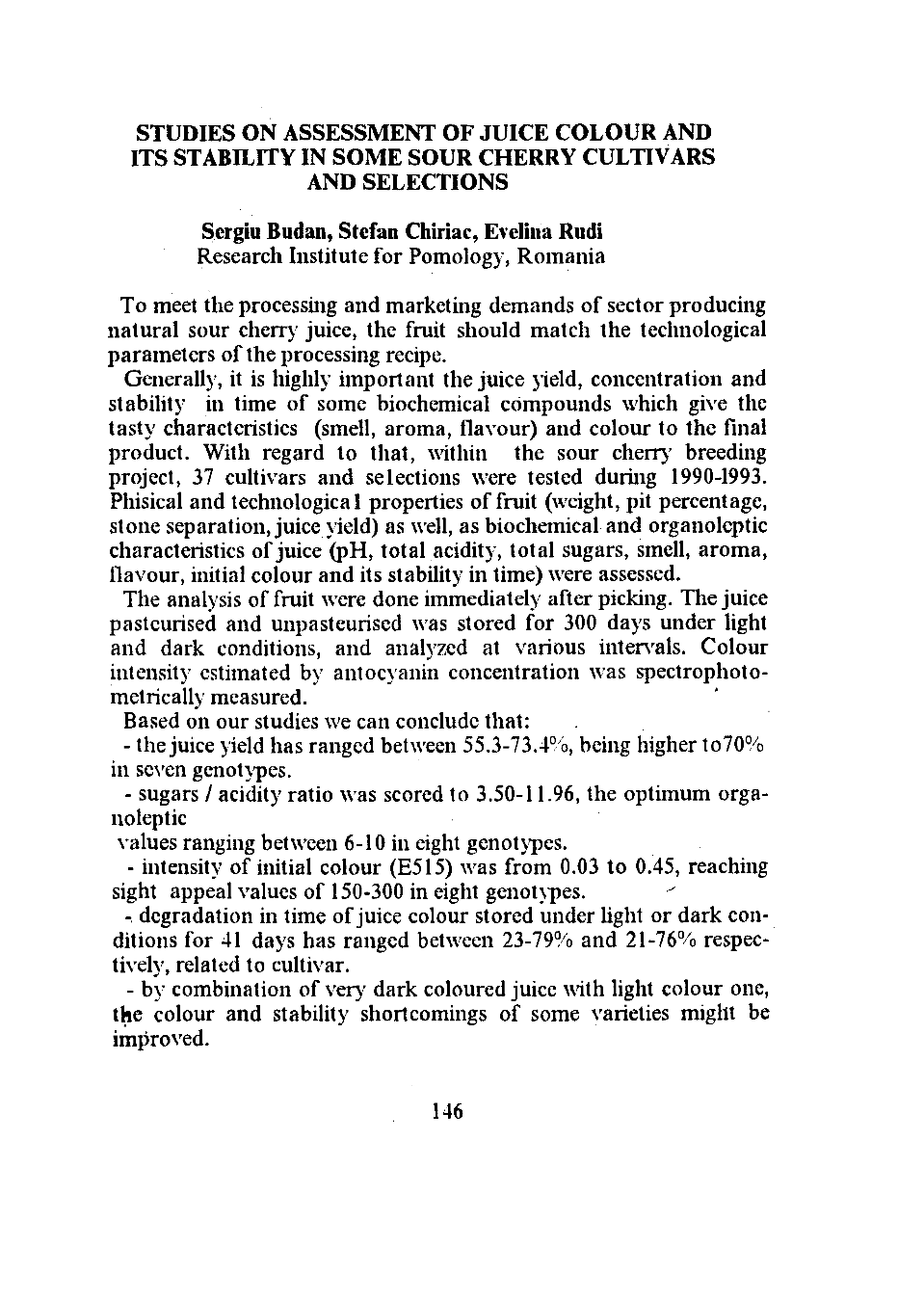

STUDIES ON ASSESSMENT OF JUICE COLOUR AND
ITS STABILITY IN SOME SOUR CHERRY CULTIVARS
AND SELECTIONS
Sergiu Budan, Stefan Chiriac, Evelina Rudi
Research Institute for Pomology, Romania
To meet the processing and marketing demands of sector producing
natural sour cherry juice, the fruit should match the technological
parameters of the processing recipe.
Generally, it is highly important the juice yield, concentration and
stability in time of some biochemical compounds which give the
tasty characteristics (smell, aroma, flavour) and colour to the final
product. With regard to that, within the sour cherry breeding
project, 37 cultivars and selections w*ere tested during 1990-1993.
Phisical and technological properties of fruit (weight, pit percentage,
stone separation, juice yield) as well, as biochemical and organoleptic
characteristics of juice (pH, total acidity, total sugars, smell, aroma,
flavour, initial colour and its stability in time) were assessed.
The analysis of fruit were done immediately after picking. The juice
pasteurised and unpasteurised was stored for 300 days under light
and dark conditions, and analyzed at various intervals. Colour
intensity estimated by antocyanin concentration was spectrophoto-
metricallv measured.
Based on our studies w'e can conclude that:
- the juice yield has ranged between 55.3-73.4%, being higher to70%
in seven genotypes.
- sugars / acidity ratio was scored to 3.50-11.96, the optimum orga
noleptic
values ranging between 6-10 in eight genotypes.
- intensity of initial colour (E515)
was
from 0.03 to 0.45, reaching
sight appeal values of 150-300 in eight genotypes.
- degradation in time of juice colour stored under light or dark con
ditions for 41 days has ranged between 23-79% and 21-76% respec
tively, related to cultivar.
- by combination of very dark coloured juice with light colour one,
the colour and stability shortcomings of some varieties might be
improved.
146
Научная электронная библиотека ЦНСХБ









